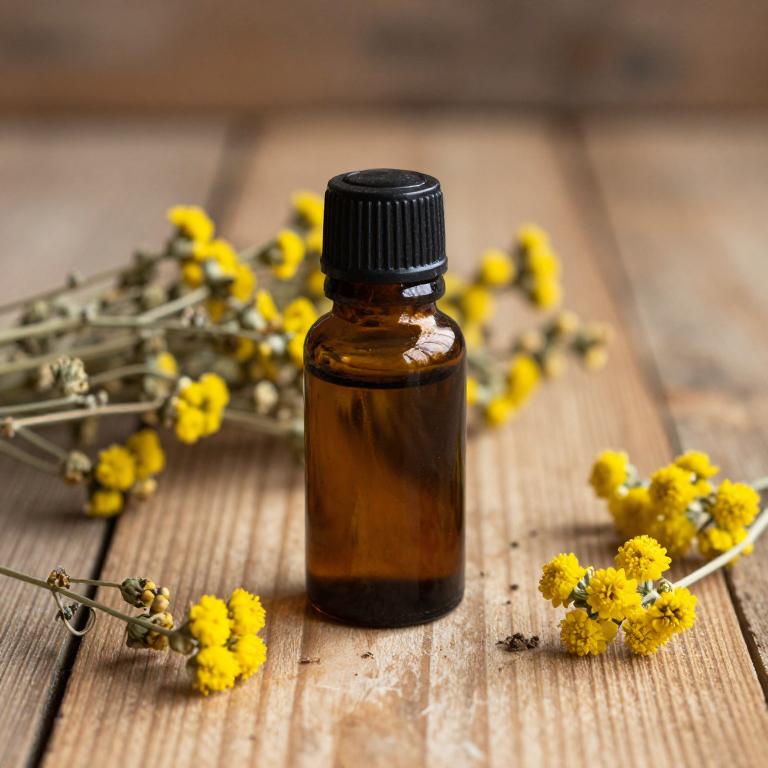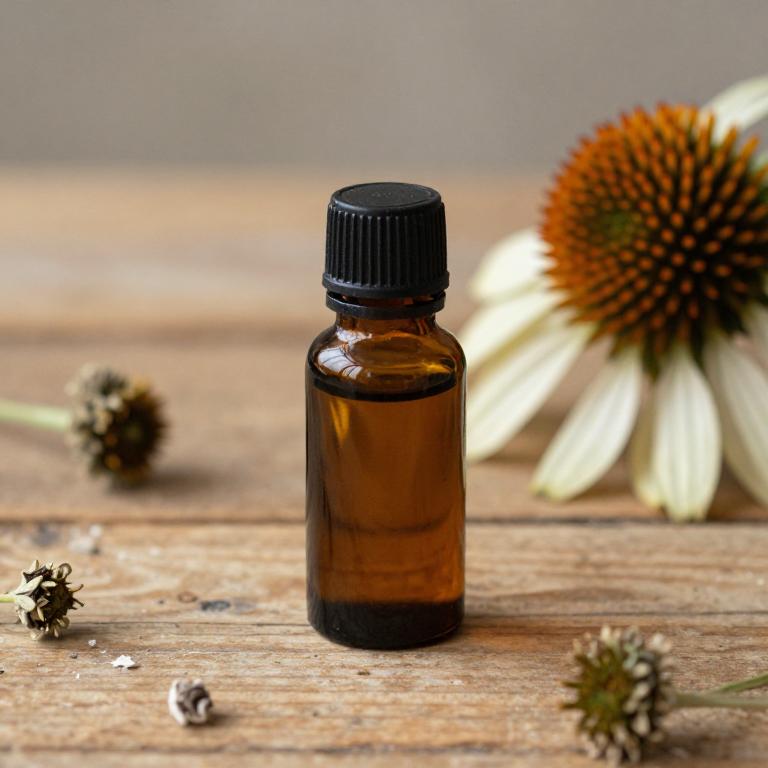10 Best Herbal Essential Oils For Postoperative Recovery

Herbal essential oils have gained attention for their potential role in supporting postoperative recovery due to their anti-inflammatory, analgesic, and antimicrobial properties.
When used appropriately, such as through aromatherapy or topical application, these oils can help reduce stress, alleviate pain, and promote relaxation, which are crucial for a patient's overall healing process. Oils like lavender, chamomile, and peppermint are commonly recommended for their soothing and healing effects. However, it is important to use these oils under the guidance of a healthcare professional to ensure safety and effectiveness, especially for patients with allergies or specific medical conditions.
Integrating herbal essential oils into postoperative care can complement traditional treatments and contribute to a more holistic recovery experience.
Table of Contents
- 1. Turmeric (Curcuma longa)
- 2. Salvia (Salvia officinalis)
- 3. Ceylon cinnamon (Cinnamomum zeylanicum)
- 4. Rosemary (Rosmarinus officinalis)
- 5. Ginger (Zingiber officinale)
- 6. Chaste tree (Vitex agnus-castus)
- 7. Lemon balm (Melissa officinalis)
- 8. Black pepper (Piper nigrum)
- 9. Echinacea (Echinacea purpurea)
- 10. Thyme (Thymus vulgaris)
1. Turmeric (Curcuma longa)

Curcuma longa, commonly known as turmeric, contains essential oils that have shown potential benefits for postoperative recovery due to their anti-inflammatory and antioxidant properties.
These essential oils may help reduce swelling and pain, promoting faster healing of surgical wounds. Studies suggest that the active compounds in curcuma longa essential oils can support immune function, aiding the body's natural repair processes. When used as a complementary therapy, these oils may enhance recovery when integrated with standard medical care.
However, it is important to consult with a healthcare professional before using curcuma longa essential oils to ensure safety and appropriate dosage.
2. Salvia (Salvia officinalis)

Salvia officinalis, commonly known as sage, produces essential oils that have been traditionally used for their therapeutic properties, including anti-inflammatory and antimicrobial effects.
These essential oils, often extracted through steam distillation, contain compounds like thujone, camphor, and cineole, which contribute to their medicinal value. In the context of postoperative recovery, sage essential oils may help reduce inflammation and promote healing by supporting tissue regeneration and preventing infection. When used in aromatherapy or topical applications, these oils can also alleviate stress and enhance overall well-being, aiding in the psychological aspects of recovery.
However, it is important to consult with a healthcare professional before using sage essential oils, as they may interact with certain medications or have contraindications for specific individuals.
3. Ceylon cinnamon (Cinnamomum zeylanicum)

Cinnamomum zeylanicum, commonly known as cinnamon bark, is a valuable source of essential oils that have been traditionally used for their therapeutic properties.
The essential oil derived from this plant contains compounds such as cinnamaldehyde, which exhibit antimicrobial, anti-inflammatory, and analgesic effects. In the context of postoperative recovery, these properties may help reduce infection risk, alleviate pain, and promote healing. When used in aromatherapy or topical applications, cinnamon essential oil can support overall well-being and reduce stress, which is crucial for a patient's recovery process.
However, it is important to use the oil under professional guidance to ensure safe and effective integration into postoperative care protocols.
4. Rosemary (Rosmarinus officinalis)

Rosmarinus officinalis, commonly known as rosemary, is a herb widely recognized for its therapeutic properties, particularly when used in the form of essential oils.
These oils are known to enhance circulation and reduce inflammation, which can be beneficial during postoperative recovery. The antimicrobial and analgesic properties of rosemary essential oil may help in preventing infections and managing pain, supporting the body's healing process. Additionally, its stimulating effect on the nervous system can aid in reducing mental fatigue and promoting a sense of well-being after surgery.
When used appropriately, rosemary essential oil can be a valuable complementary therapy in the recovery phase following surgical procedures.
5. Ginger (Zingiber officinale)

Zingiber officinale, commonly known as ginger, is a valuable source of herbal essential oils that have shown potential in supporting postoperative recovery.
The essential oils derived from ginger contain bioactive compounds such as gingerol and shogaol, which possess anti-inflammatory and analgesic properties. These properties may help reduce pain and inflammation following surgery, thereby promoting a faster and more comfortable recovery process. Additionally, the aromatic compounds in ginger essential oils can have a calming effect, potentially reducing stress and anxiety in patients during the postoperative period.
As a natural alternative or complement to conventional treatments, ginger essential oils offer a promising avenue for enhancing the overall recovery experience.
6. Chaste tree (Vitex agnus-castus)

Vitex agnus-castus, commonly known as chasteberry, has been traditionally used for its potential hormonal balancing properties, which may support postoperative recovery by helping regulate stress and hormonal fluctuations.
While not a substitute for medical treatment, essential oils derived from vitex may offer calming and anti-inflammatory benefits when used appropriately in aromatherapy or topical applications. These oils are believed to promote emotional well-being, which can indirectly aid in the overall healing process after surgery. However, it is important to consult with a healthcare provider before using any essential oils, especially during recovery, to ensure safety and appropriateness.
When used in conjunction with professional care, vitex essential oils may contribute to a more holistic approach to postoperative wellness.
7. Lemon balm (Melissa officinalis)

Melissa officinalis, commonly known as lemon balm, is a popular herbal plant whose essential oil has shown potential in supporting postoperative recovery.
The essential oil contains compounds such as linalool and linalyl acetate, which possess calming and anti-inflammatory properties that may aid in reducing stress and inflammation following surgery. Studies suggest that inhaling or applying diluted lemon balm essential oil can promote relaxation, which is beneficial for patients undergoing recovery. It may also help alleviate symptoms such as anxiety and insomnia, common challenges after surgical procedures.
However, it is important to consult with a healthcare provider before using essential oils to ensure they are safe and appropriate for individual health conditions.
8. Black pepper (Piper nigrum)

Piper nigrum, commonly known as black pepper, contains essential oils that have been explored for their potential benefits in postoperative recovery.
These essential oils, derived from the dried fruit of the plant, are rich in compounds like piperine, which may possess anti-inflammatory and analgesic properties. Studies suggest that the aromatic compounds in black pepper essential oil could help reduce inflammation and pain, supporting faster healing after surgery. Additionally, the stimulating effects of these oils may enhance circulation, aiding in the recovery process.
When used appropriately, such as in aromatherapy or topical applications, Piper nigrum essential oil may serve as a complementary therapy to conventional postoperative care.
9. Echinacea (Echinacea purpurea)

Echinacea purpurea, commonly known as purple coneflower, is a traditional herbal remedy that has been studied for its potential anti-inflammatory and immune-boosting properties.
While primarily recognized for its use in supporting immune function, Echinacea purpurea essential oils may offer additional benefits for postoperative recovery by promoting wound healing and reducing inflammation. These essential oils can be applied topically to surgical sites to help alleviate pain and expedite the healing process. However, it is important to consult with a healthcare provider before using Echinacea essential oils, as they may interact with certain medications or cause allergic reactions in some individuals.
Overall, Echinacea purpurea essential oils may serve as a complementary therapy to support the body's natural recovery process after surgery.
10. Thyme (Thymus vulgaris)

Thymus vulgaris, commonly known as thyme, is a valuable herb whose essential oil has been traditionally used for its therapeutic properties.
The essential oil of thyme contains potent compounds such as thymol and carvacrol, which exhibit antimicrobial, anti-inflammatory, and antioxidant effects. When used in postoperative recovery, thyme essential oil may help reduce infection risk and promote wound healing through its natural antiseptic properties. It is often diluted and applied topically or used in aromatherapy to support overall recovery and reduce stress.
However, it should be used with caution and under the guidance of a healthcare professional to ensure safety and efficacy.